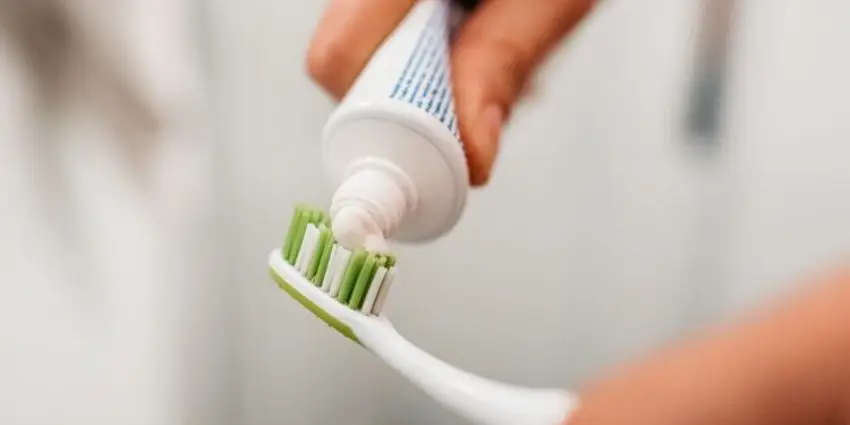5 Signs You Might Be Brushing Too Hard
We’ve all been told since childhood that brushing twice a day keeps cavities away. But what if your brushing habits are doing more harm than good? At Zikas Dental Studio, we often see patients who mean well but unknowingly damage their teeth by brushing too aggressively.
When “Too Clean” Becomes a Problem
We’ve all been told since childhood that brushing twice a day keeps cavities away. But what if your brushing habits are doing more harm than good? At Zikas Dental Studio, we often see patients who mean well but unknowingly damage their teeth by brushing too aggressively.
Overbrushing doesn’t make your teeth cleaner—it can wear away your enamel, irritate gums, and even cause long-term sensitivity. Let’s uncover the five key signs that you might be brushing too hard and how to fix it.
Why Brushing Pressure Matters
Your enamel is the hardest substance in your body, but it isn’t indestructible. When you apply too much force, the bristles can gradually erode the enamel and push gums away from the tooth roots.
The Science of Tooth Enamel and Gums
- Tooth enamel acts as a protective shield for your teeth. Once worn down, it doesn’t grow back.
- Gums protect the roots of your teeth. Aggressive brushing can cause them to recede, exposing sensitive areas and leading to discomfort.
The right brushing technique is gentle, consistent, and focuses on time and motion, not force.
The 5 Signs You Might Be Brushing Too Hard
1. Receding Gums
If your gums seem to be “pulling away” from your teeth, it could be due to overbrushing. Gum recession exposes the roots, leading to sensitivity and a higher risk of decay.
What to Do:
Use a soft-bristled toothbrush and gentle circular motions. Schedule a checkup at Zikas Dental Studio to assess gum health.
2. Tooth Sensitivity
Do you wince when drinking hot coffee or eating ice cream? Enamel loss from aggressive brushing can make teeth more sensitive to temperature changes.
What to Do:
Switch to a desensitizing toothpaste and use a lighter touch. If the problem persists, consult your dentist to rule out enamel erosion or gum recession.
3. Frayed Toothbrush Bristles
If your toothbrush looks like it’s been through a battle after only a few weeks, that’s a red flag. Bristles that splay or flatten quickly indicate excessive brushing pressure.
What to Do:
Let the bristles glide gently across your teeth. Replace your toothbrush every 3–4 months, or sooner if it shows wear.
4. Yellow or Dull Teeth
Brushing harder doesn’t whiten your teeth—it can actually make them appear more yellow. Why? Because overbrushing wears away the white enamel, revealing the yellow dentin beneath.
What to Do:
Maintain gentle brushing and consider professional whitening options offered at Zikas Dental Studio for safe, lasting brightness.
5. Bleeding or Inflamed Gums
Gums that bleed during brushing are often a sign of irritation or early-stage gum disease. While plaque buildup can cause bleeding, excessive brushing pressure worsens the inflammation.
What to Do:
Brush gently along the gumline and floss daily. If bleeding persists, schedule a professional cleaning with your dental hygienist.
How to Fix Overbrushing Habits
Adopt the Right Brushing Technique
Hold your toothbrush at a 45-degree angle and use small circular motions. Don’t scrub side-to-side like you’re polishing tiles—this causes more damage than good.
Choose the Right Toothbrush
Opt for a soft or extra-soft bristle toothbrush. Hard-bristled brushes might feel more “effective,” but they’re harsh on your enamel and gums.
Go Easy with Electric Brushes
Electric toothbrushes are great—but only if used correctly. Many modern models have pressure sensors that alert you when you’re brushing too hard.
Adjust Your Brushing Time and Pressure
Two minutes, twice a day, is plenty. The goal is consistency, not force. Think of brushing like massaging your teeth and gums—not scrubbing them.
When to Visit Zikas Dental Studio
If you’re noticing sensitivity, gum changes, or enamel wear, don’t wait until it worsens. At Zikas Dental Studio, our experts can identify early signs of overbrushing, provide personalized guidance, and recommend gentle oral care tools.
Regular checkups help you maintain a clean, healthy smile—without the risk of overdoing it.
FAQs
Q1. Can brushing too hard cause cavities?
Indirectly, yes. Overbrushing can cause enamel wear, making teeth more vulnerable to decay.
Q2. Should I use a medium or soft toothbrush?
Always choose soft bristles unless otherwise directed by your dentist.
Q3. How do I know if I’m brushing too hard?
If your gums bleed frequently or your brush frays early, you’re likely applying too much pressure.
Q4. Is electric brushing safer?
Yes, if used properly. Many electric toothbrushes help regulate brushing force.
Q5. Can I reverse enamel damage?
Unfortunately, enamel doesn’t grow back, but fluoride treatments can strengthen what’s left.
Q6. What’s the safest toothpaste for sensitive teeth?
Choose one labeled “for sensitive teeth” with stannous fluoride or potassium nitrate.
Conclusion: Brush Smart, Not Hard
Healthy brushing isn’t about power—it’s about precision. Brushing too hard can undo years of good oral care, but with the right technique and tools, you can protect your smile for life.
At Zikas Dental Studio, our team helps you perfect your at-home oral hygiene routine, so your teeth stay strong, bright, and beautiful.

